Top 45 Best Soundtracks Over The Past Ten Years
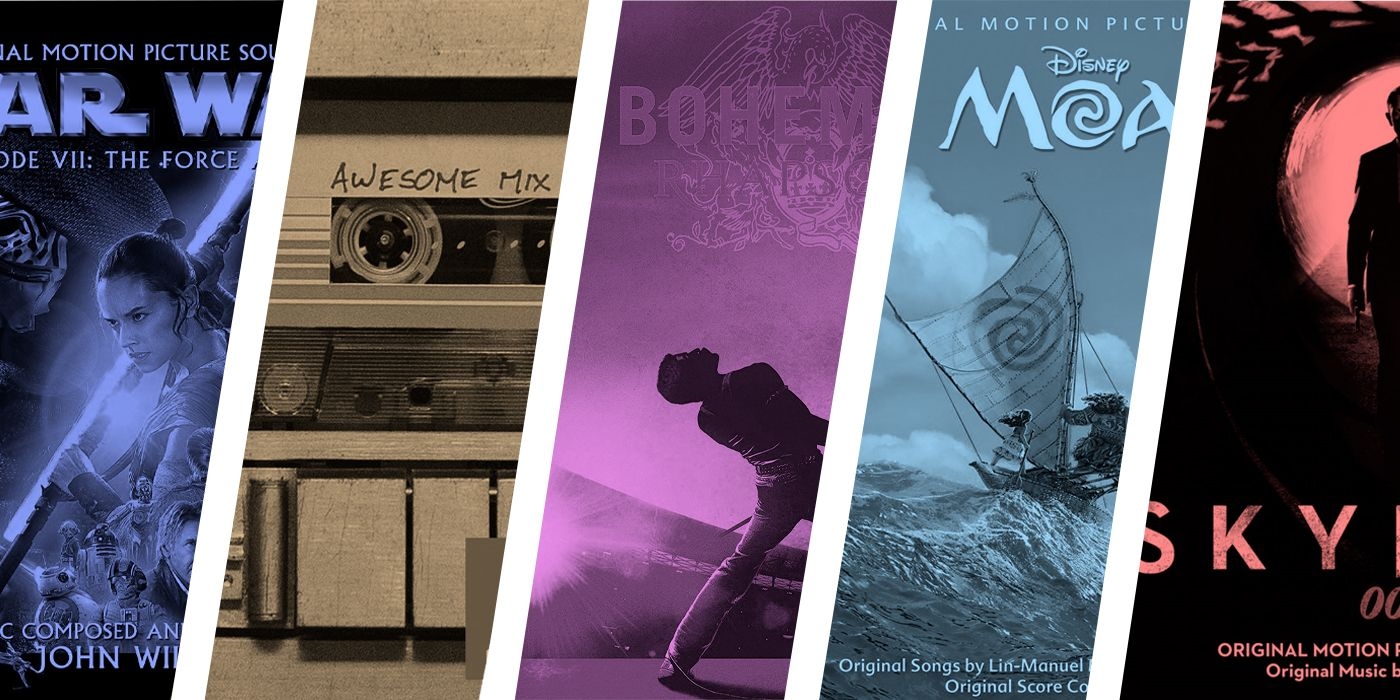 |
| Best soundtracks of 2010s. Photo: Screen Rant |
A Star Is Born” (2018)
Who knew Bradley Cooper had it in him? Before this, he was the star of “The Hangover,” “American Sniper,” and “Burnt.” But from the opening strum of a moody guitar, it’s clear that “A Star Is Born” not only showcases Lady Gaga the actress – two stars come to light here, and Cooper the musician is one of them. He plays Jackson Maine, the swaggering, swigging rockstar with deep pain in his heart. He wears a hat onstage and seldom makes eye contact with his seas of fans, delivering traditionally masculine rock ballads in register a whole octave lower than his usual voice.
Jackson speaks of “three chords and the truth,” and it’s with this simple philosophy that Cooper writes most of his songs. “Music To My Eyes,” “Alibi,” and “Maybe It’s Time” standout as crooning all-timers for Jackson to perform solo. But then he also writes all of Ally’s songs – “Always Remember Us This Way” has the widespread appeal of any good piano-led track in the charts, while “Look What I Found” has more groove to it. It’s a shame that songs in the latter half of the film seem to have a somewhat derogatory view of pop music, with “Why Did You Do That?” and “Before I Cry” in particular – but it all melts away by the time Gaga delivers the heartstopping “I’ll Never Love Again”. The show, of course, categorically belongs to “Shallow” – the Oscar-winning belter that also enlisted the help of Mark Ronson to get it off the ground. The lyrics are familiar, but the notes Gaga hits are nothing short of miraculous. Impossible to only play once. – EK
Johnny Greenwood's "Phantom Thread" (2017)
Radiohead guitarist Johnny Greenwood collaborated with filmmaker Paul Thomas Anderson four times, and "Phantom Thread" is considered by critics to be his best work yet.
"Midsommar" (2019)
"Midsommar" director Ari Aster listened to Bobby Krlic, aka the Haxan Cloak, as he was writing one of the most critically acclaimed horror movies of the year, and then asked the musician to score the finished product, culminating in a soundtrack as well-received as the film itself.
“The Greatest Showman” (2017)
Sometimes the movie doesn’t necessarily live up to its stellar music. That’s the case with Michael Gracey and Hugh Jackman’s 2017’s passion project, “The Greatest Showman,” a movie musical with a ludicrous plot and incomprehensible logic, but undeniably full of show-stopping numbers. Featuring original songs written by Oscar and Tony-Award winners Benj Pasek and Justin Paul before they collaborated on “La La Land,” the Grammy-winning ‘Showman’ soundtrack was so popular it sold 5.3 million copies worldwide and spawned a spin-off album, “The Greatest Showman: Reimagined,” featuring pop covers of its popular songs a year later. The highlights included the Academy Award-nominated “This is Me” featuring Keala Settle, “Never Enough” sung by Loren Allred and Hugh Jackman and the cast’s rendition of “The Greatest Show.” – Gregory Ellwood
“Transit” (2019)
Christian Petzold’s “Transit” is a film that looks like a classically-minded piece of international suspense cinema on its surface. And yet, repeat viewings reveal what an unusual and complex film this is: it’s another one of the director’s riveting studies of identity and statehood, and how the two are often inexorably intertwined. The original music composed for “Transit” is similarly old-fashioned, but beneath its polished, traditional exterior lies a roiling cauldron of sonic intricacies that emphasize the film’s rhapsodic, dreamily ambiguous vibe. Petzold has a good thing going with composer Stefan Will, who also wrote the string-heavy orchestrations for “Barbara” and the slinky, jazz numbers that punctuate the action in the director’s previous film, “Phoenix.” Will’s work for “Transit” sounds more like a conventional film score than any of these aforementioned works: there are even traces of the great Bernard Hermann in cuts like the solemn, foreboding “Montreal” (which acts as the movie’s unofficial theme) and “Abreise,” which sounds like it should be playing over the end credits of a lost Nicolas Roeg picture. So much of the dark joy of watching “Transit” comes its slow, patient accumulation of trepidation: a feeling that the film’s protagonist is standing on unsteady ground, that he could be found out at any moment. Will’s musical contributions add considerable layers to the film’s abundance of expectancy, tension, and intrigue, resulting in what is arguably the composer’s finest collaboration with this particular director to date. – Nicholas Laskin
“Queen Of Earth” (2015)
Outside of Danny Bensi & Saunder Jurriaans, perhaps no name was bigger and more important in indie scores in the 2010s then Keegan DeWitt. Which is probably why it’s so difficult to make one pick here. Starting out in mumblecore scores for filmmaker Aaron Katz, DeWitt’s jazzy stylings quickly evolved. The musician created some terrific works this decade, the Woody Allen-esque score for “Listen Up Philip,” the synth-y score for “Land Ho!,” the poignant simple tunes for “This Is Martin Bonner,” the pacific, jazzy-EDM evening breezes of the mysterious noir “Gemini.” But if you have to pick one, pick, DeWitt’s collaborations with Alex Ross Perry and specifically, the emo, melodrama horror of “Queen Of Earth,” Perry’s riff on Polanski and Bergman-esque loss of self and sanity-losing gaslighting. Utilizing creepy bells, eerie piano and lonely harmoniums, DeWitt helps shape the soundtrack to a woman under the influence of outside forces and the freakish terror of being mentally pulled apart. – Rodrigo Perez
"Stranger Things" (2016)
Netflix's "Stranger Things" is an over-the-top homage to all things '80s, but composers Kyle Dixon and Michael Stein put together a much more subdued soundtrack to back the monster-fighting story, much to critics' delight.
"The canvas they paint on is remarkably spare and restrained," said Saby Reyes-Kulkarni in Pitchfork. "At any given point, it feels as if there are only a handful of sounds in the stereo field, and what at first comes off as a limited range slowly reveals itself as the opposite."
"Arrival" (2016)
Jóhann Jóhannsson's second appearance on this list is also his third collaboration with "Arrival" director Denis Villeneuve, this time crafting a sparse, haunting soundtrack to lay over the story of a scientist who tries to communicate with an alien species that lands on earth.
Rob Wacey of AllMusic called the album "a great piece of film score work, delivering menacing, daunting cacophonies of noise that evoke all types of fear, wonder, and intrigue that are evident within the movie itself."
“Man Of Steel” (2013)
It’s extremely difficult to pick just one Hans Zimmer score for the Best of the Decade (don’t worry, we gave up, you’ll see later). Zimmer had a banner decade. 2010 brought “Inception” and the BRAAAM—Edith Piaf slowed-down and distorted—and that terrifically thrilling song, 2012 delivered “The Dark Knight Rises,” and the chilling, fanatical, deshi basara/fire rises chant, later on there was terrific collaborations with Steve McQueen (“12 Years a Slave,” “Widows“) and the outstanding throbbing sonic lava of the “Blade Runner: 2049” soundtrack. On any given day, one of these soundtracks goes on this list and it’s all a bit arbitrary. And yet, there’s one Zimmer soundtrack, we can’t shake and it’s for an very uneven movie: Zack Snyder’s “Man Of Steel.” But if any thrilling soundtrack elevated a film, and made it soar to heights it perhaps didn’t even deserve to, that’s certainly the case with Zimmer’s redefining Superman score. Look, superheroes dominated this decade, but put a gun to your head and what themes do you really know aside from say, “The Avengers” theme song? Zimmer really brought the iconic theme song back with his outstanding, “Look To The Stars” motif built on a two-note piano riff that keeps building, crescendoing and ascending into something godly, celestial, heroic, and poignant (it really take off in “Flight”). Sewn throughout the score, the movie keeps coming back to this glorious theme, sometimes thunderously so, and in its glorious, blinding glow, it typifies hope like no other superhero score this decade. – RP
“Sing Street” (2016)
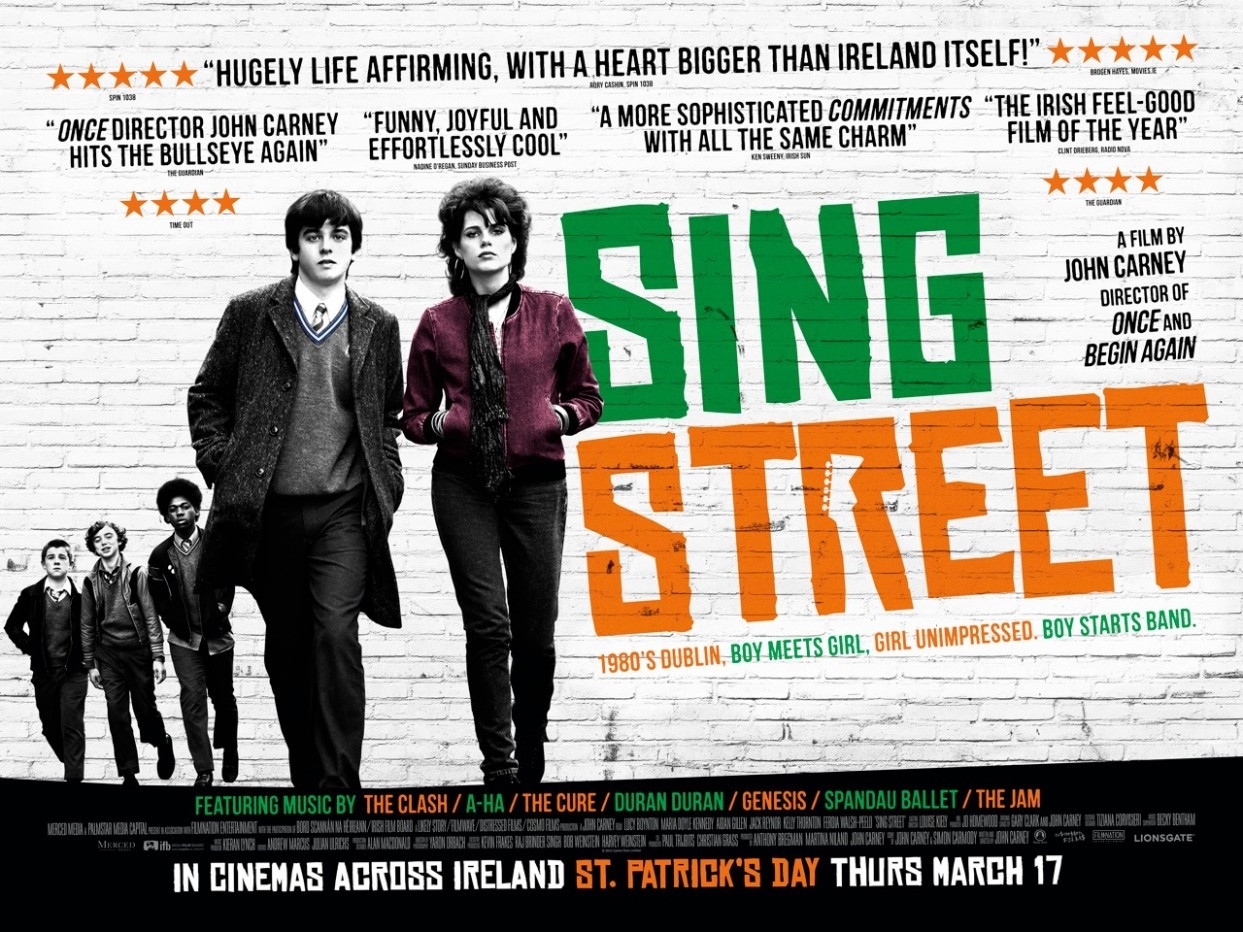 |
| Photo: The Irish Sun |
Inspired by director and screenwriter John Carney‘s teenage years in ’80s Dublin, the coming of age comedy musical showcased a teenage band coming together to the music of the era. The soundtrack featured classics from artists such as Duran Duran (“Rio”), Hall & Oates (“Maneater”), and The Cure (“In Between Days”) while the original tracks were headlined by the absolute banger, “Drive It Like You Stole It,” and ballads reminiscent of Carney’s “Once,” such as “To Find You” and “Up.” Credited to up to five songwriters, the songs managed to touch on specific styles of the era without sounding reductive or, even worse, like parodies. Not an easy thing to do almost 30 years after the fact. – GE
"Hereditary" (2018)
"Hereditary" is the second film of director Ari Aster to make the best soundtracks of the decade list. Once again, Aster turned to an unexpected musician to help him layer this story of a family's nightmarish secrets: Arcade Fire saxophonist Colin Stetson.
Zach Kelly of Pitchfork praises the album for its music and also its "willingness to let wide-open trenches of silence do much of the heavy lifting throughout the film, only to slowly suck you back down into a dank well of insular terror after the collective exhale has begun. In these rare moments of calm, Stetson's cautiously beautiful, fairytale-like asides begin to read more and more sinister."
“Enemy” (2013)
Sparse, atonal, and enigmatic, like the film it complements, Danny Bensi and Saunder Jurriaans’ score for Denis Villeneuve’s terrific thriller of doppelgangers and masculine disquiet is a summary lesson in minimalist unease. Utilizing surprisingly classical instrumentation, the rising indie composers (who also scored “Martha Marcy May Marlene,” “Simon Killer,” “Last Days in the Desert,” and over 50 film and TV projects this decade) employ lone cellos or single clarinets in simple, discordant drones before fleshing out the music for brief stretches with layers of strings and roiling percussion.
These more expansive parts are both anti-melodic and strangely lush, so much so that at particular moments it can sound almost Hitchcock-ian. Mostly though it’s pared-back and uncanny, mirroring the unsettled mind of the “Enemy” protagonist Jake Gyllenhaal. It may not be the kind of album one’s going to pop on for background noise all that often, but within the context of the movie, it’s completely unnerving. Bensi and Jurriaans, who became go-to-indie-film-composers this decade, cemented their career here, creating that sense of creeping eeriness that “Enemy” delivers more single-mindedly than most films released this decade. – Jessica Kiang
"Black Panther" (2018)
Kendrick Lamar curated the soundtrack for Marvel's "Black Panther" and also sings on five of its tracks, resulting in an album that is critically acclaimed for being anything but another forgettable blockbuster soundtrack.
"The tracks play it safe, but the project itself does not," says Clayton Purdom in The AV Club, calling the album "an audacious exertion of energy from one of the planet's most universally revered musicians."
"Good Time" (2017)
Robert Pattinson crime thriller "Good Time" demanded a pulsing electronic music backing and Daniel Lopatin, working under his moniker Oneohtrix Point Never, more than delivered according to critics' sensibilities.
"It's a masterful job of homage, and all those pulsating synths and cavernous low tones give the film much of its swagger, and they promise to intensify your own, far less exciting commute as well," said Sean O'Neal in The AV Club.
"Hateful Eight" (2015)
Quentin Tarantino's "Hateful Eight" marked the first time Ennio Morricone had scored a Western in over 30 years, and the music has more in common with his later, more traditional work, but the master is still at very much at the top of his game.
"You might guess that after this long, he'd have to make increasingly complex pieces to find new things to say. Yet the opposite is true," said Marc Masters in Pitchfork. "His melodies are still simple, relying on a few notes to form a backbone from which he never strays far. His arrangements and flourishes build momentum, but the core is always powerfully uncluttered. Morricone trusts that a few strong musical ideas can supply lots of atmosphere and emotion throughout an epic-length film."
"Stranger Things Vol 2" (2016)
Even more music from "Stranger Things" composers Kyle Dixon and Michael Stein was released in a second volume, though critics were slightly cooler on the more supernaturally-tinged follow-up.
"Volume Two echoes the series' progressively perilous shift toward the supernatural, a track like 'Danger Danger' pivoting from the evocation of bike-riding best buds toward the debut of a demoniacal monster in a parallel universe," said Neph Basedow in The Austin Chronicle.
"The Revenant" (2016)
Ryuichi Sakamoto and Alva Noto had no choice but to put together a monster of a score to back up Alejandro G. Iñárritu's survival tale starring Leonardo Dicaprio. The story features one character, mostly alone in the wilderness, which left him with little to no human interaction.
"The resulting product is huge in scope, with 23 tracks clocking in at an hour and 10 minutes, but is unnervingly hushed in execution," said John Garrett in PopMatters. "Leonardo DiCaprio's character Hugh Glass may have been violently assaulted by a grizzly bear, leading to abandonment and a fight for his life, but the music rarely approaches a forte dynamic. It's a 70-minute low boil, an astounding amount of tension that never achieves its sweet release."
"The Hunger Games: Mockingjay Part 1" (2014)
Lorde curated the soundtrack for the third film in the "Hunger Games" YA film franchise and also sings on four of the songs, leading it to be the most critically-acclaimed of the series.
"Thanks to [Lorde's] vision, and her grip on the series' most important thematic elements, the 50 minutes of music behind 'Mockingjay Part 1' ably function as both a glance at 2014's finest purveyors of complex, downcast pop and a complement to the start of the series' chaotic, brutal conclusion," said Jamieson Cox for Billboard.
"Jackie" (2016)
Pablo Larrain's "Jackie" followed Natalie Portman as Jacqueline Kennedy after the assassination of John F. Kennedy but was more experimental than just a traditional biopic, requiring a score to match.
"Levi's score is as powerful a presence as Jackie herself, and its creativity is more appropriate than more traditional music would have been," said Heather Phares in AllMusic.
"The Master" (2012)
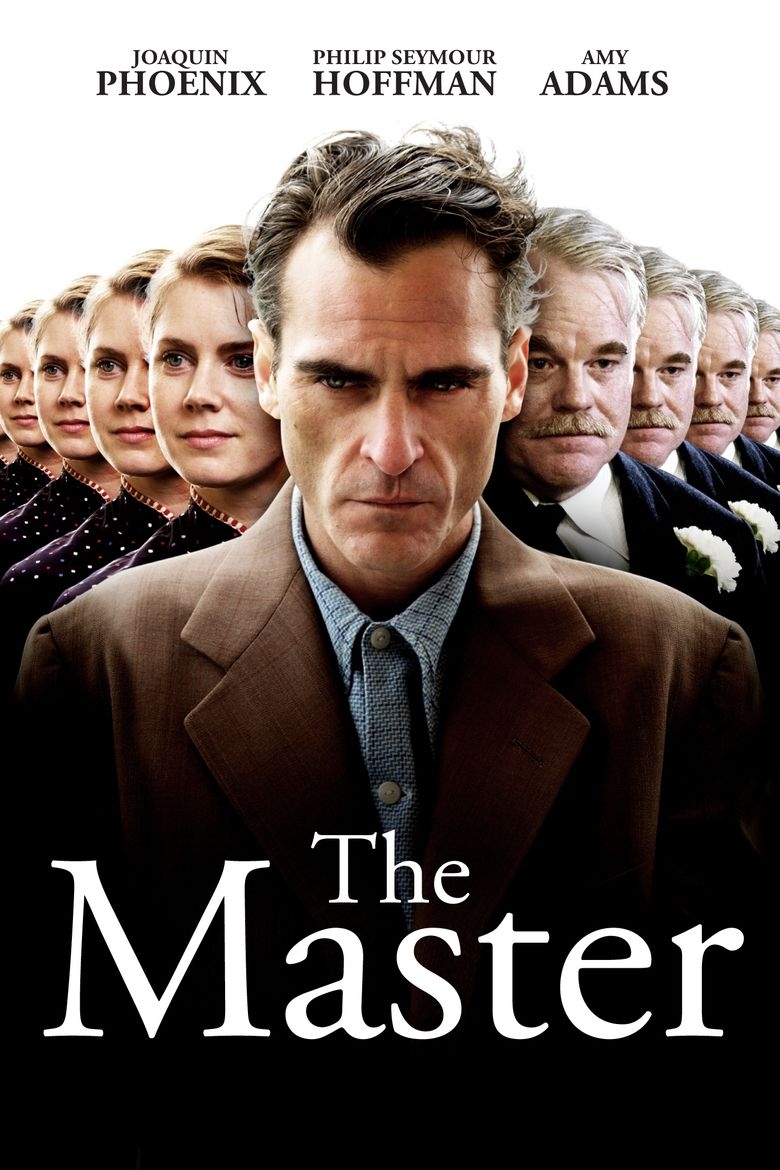 |
| Photo: Alchetron |
Every time Radiohead's Johnny Greenwood and director Paul Thomas Anderson work together it seems to be magic to critics' ears, and "The Master," the thinly-veiled deconstruction of Scientology, is no exception.
"This uneasy listening provides a masterful backdrop for Anderson's film and also makes for fascinating listening in its own right, while once again separating Greenwood from more predictable composers," said Heather Phares in AllMusic.
"The Twilight Saga: Breaking Dawn Part 2" (2012)
The often-derided "Twilight" franchise came to an end with "Breaking Dawn Part 2," but its soundtracks were often lauded, culminating in the highest-rated album yet in 2012.
"From Passion Pit's church-bell ringer 'Where I Come From' to Christina Perri's violin-strung 'A Thousand Years (Part 2),' there's one grand-ballroom epic after another... ranging from ethereal ('Bittersweet' from Ellie Goulding) to awesomely sludgy (St. Vincent's 'The Antidote')," said Melissa Maerz in Entertainment Weekly.
“mid90s” (2019)
On his debut feature as director, the scrappy, nostalgic skate picture “mid90s,” Jonah Hill curates a jukebox playlist of ‘90s hip-hop to punctuate the moments of one kid’s coming-of-age. It’s an eclectic, often contradictory sound – a bit of Pixies with ‘Wave of Mutilation’ and Morrissey with ‘We’ll Let You Know’ find the broodiness you’d associate with a teenage boy, but then tracks from Wu-Tang Clan, GZA, Gravediggaz, and Del The Funky Homosapien inject this with a lot more vigor than would be expected from, well, another indie white boy. It’s also curious that beyond the playlist, plentiful in itself, Hill also enlisted Trent Reznor and Atticus Ross to compose a handful of original tracks for the film. They are, somewhat unsurprisingly, excellent – instrumental piano-led pieces offering moments of calmer and less impulsive contemplation than the immediately evocative throwback needle drops might allow. It’s impossible by the end to disassociate the ingested culture, through the music, from the inner journey of Stevie, Hill’s young protagonist. That might be considered a flaw – if the film weren’t about a boy who struggles to vocalize his feelings, and if the music he uses in the place of his own articulations wasn’t so damn good. – Ella Kemp
“Moneyball” (2011)
“Moneyball,” is a film built off of subtlety that swells — not unlike a clubhouse without a superstar clean-up batter — the strings and piano strings playing the orchestra are always ready to provide outfield support without deliberately drawing attention to themselves, save for a few big swing moments. Mychael Danna’s “Moneyball” score close to perfectly understates Bennet Miller’s (underrated) throwback gem to New Hollywood ‘70s crowd-pleasers. Known for his efforts scoring Ang Lee’s humanist pictures, Danna has never been more on top of his game, the centerpiece training sequence “It’s a Process” turning the underdog sports montage into an almost melodic trance. The film also makes incredible use of “The Mighty Rio Grande,” by They Will Destroy You (also used in “Room”) but its implementation of Lenka’s “The Show,” sung with raw innocence by Billy Beane’s daughter (played by Kerris Dorsey) that takes the catharsis cake. If you don’t tear up alongside the Oakland A’s GM as the film cuts to black… I don’t know, maybe you’d get along better with one of Jonah Hill’s computer programs. –Andrew Bundy
“Call Me By Your Name” (2017)
Luca Guadagnino, in addition to being one of our great modern auteurs, is also a filmmaker who understands how powerful the union of a moving image and a perfectly employed piece of music can be. Who can forget the immaculate use of the (relatively) obscure Rolling Stones post-disco cut “Emotional Rescue” in “A Bigger Splash?” Or Thom Yorke’s gnomic, threatening original compositions for his divisive “Suspiria” remake? There is no better example of Guadagnino’s fine ear than the soundtrack for his finest film to date, “Call Me By Your Name.” What other director could transition from the warmed-over 80’s cheese of Giorgio Moroder and Joe Esposito’s “Lady Lady Lady” to the sparkling new wave sounds of the classic Psychedelic Furs tune “Love My Way” in the same scene? “Call Me By Your Name” also makes deft use of various classical orchestrations (including some choice cuts by John Adams and Ryuichi Sakamoto) but we would be remiss if we didn’t mention the instant-classic Sufjan Stevens songs that were written specifically for the film. The impossibly gentle “Futile Devices” plays during one of the film’s most evocative visual interludes, although the use of “Visions of Gideon” – which plays more or less in its entirety during the bravura single-take climax – might be the most iconic use of a pop song to be seen in any film from 2017. Stevens gave an Oscar performance for the ages, playing “Mystery of Love” at the 90th annual Academy Awards, and even though he lost to “Remember Me” from “Coco” (a great song in its own right), his rendition of the song is one that is one that will live on in our memory. – NL
“Beasts of the Southern Wild” (2012)
Gone from indie-critic beloved and Academy Award-nominated to seen as racist trash for its magical negro tropes and its fetishization of the downtrodden, I’m not sure where the culture lands on Ben Zeitlin‘s “Beasts Of The Southern Wild,” and without a rewatch, it’s easy to second guess oneself. But make no mistake, the twinkling, sad violins and cripple-creek-y banjo score of “Beasts of The Southern Wild,” heart-stirring and rousing is the real deal. Written by Dan Romer and Zeitlin, the former’s career hasn’t commensurately taken off as much as it should (though he was hired and rumored to be removed from the new James Bond movie, so that’s at least a move), but that doesn’t discount just how beautifully resonant, enchanting and splendorous the movie’s uplifting music can be (special note: did you know Romer’s “Glory At Sea” score for Zeitlin [2008] was appropriated for Obama and one of his most famous campaign ads?). ‘Southern Wild,’ might be problematic and you might just be backlash-sensitive, I honestly wouldn’t know eight years later, but Romer’s lovely, moving score is undeniably hopeful, touching and full of magical spirit. – RP
“La La Land” (2016)
A collaboration between composer Jordan Hurwitz and the songwriting team of Benj Pasek and Justin Paul, the songs from the original movie musical were inescapable from December 2016 through the Academy Awards at the end of February. Belted out by either stars Emma Stone, Ryan Gosling, or a people’s chorus, Hurwitz, Pasek, and Paul composed a jazz-influenced set of songs that could have been popular at the height of the classic MGM musicals. Highlights included “Another Day of Sun,” “Someone in the Crowd,” “City of Stars,” and “Audition (The Fools Who Dream).” John Legend‘s “Start a Fire” still feels out of place, but the others are borderline iconic enough that you can guarantee you’ll constantly hear one familiar refrain when LA hosts the Summer Olympics in 2028. – GE
“Annihilation” (2018)
Alex Garland’s “Annihilation” might have just been another stock sci-fi adventure in any other director’s hands. Thankfully, Garland is one of our smartest purveyors of science fiction, which means that “Annihilation” owes a greater debt to Andrei Tarkovsky than “Predator” (no disrespect intended to John McTiernan’s 1987 original). The original motion picture soundtrack for “Annihilation,” featuring a procession of deeply disturbing original compositions by Geoff Barrow and Ben Salisbury, is every bit as unorthodox and disquieting as the film itself. It is haunting, unclassifiable work – the kind of stuff that feels as though it was siphoned from someone’s nightmares and then laid on wax. For every unexpected flourish in this collection – the mournful acoustic guitar of “The Watchtower,” the jangling ambient undulations of “The Alligator” – there’s a piece that is nothing less than stratospheric in its sonic ambition. It’s hard to capture the primeval majesty of “The Alien,” a twelve-minute behemoth that feels like watching a deceased loved one come back to reanimated life and speak to you in an alien tongue. It’s a yawn into the abyss, a howl of noise and clatter and shimmer (see what we did there?) that is, in a word, perfect. “Annihilation” is somehow sickly and exalted at the same time, buzzing with notes of fear and spectacular awe to the degree that it makes other avant-garde sci-fi movie soundtracks look feeble in comparison. Alex Garland is a genuine visionary, and with “Annihilation,” he’s helped put together what is unquestionably a visionary soundtrack. – NL
''Almost Famous''
You can’t have a “Best Movie Soundtracks” list without Almost Famous—it’s practically a crime. Indeed, filmmaker Cameron Crowe is one of the best soundtrack/mix tape curators around, and his 2000 masterpiece carries with it one of the best soundtracks in cinema history. The story of a young journalist enamored of (and then struck down by) celebrity, glory, and fame is effectively accompanied by an eclectic mix of songs. Elton John’s “Tiny Dancer” soundtracks one of the great moments in cinema history, but songs like Simon & Garfunkel’s “America” and Cat Stevens’ “The Wind” are equally effective. And then there’s the Stillwater original “Fever Dog”, which fits right in alongside these other classics. Basically, the Almost Famous soundtrack is essential, full-stop. – Adam Chitwood
''Inside Llewyn Davis''
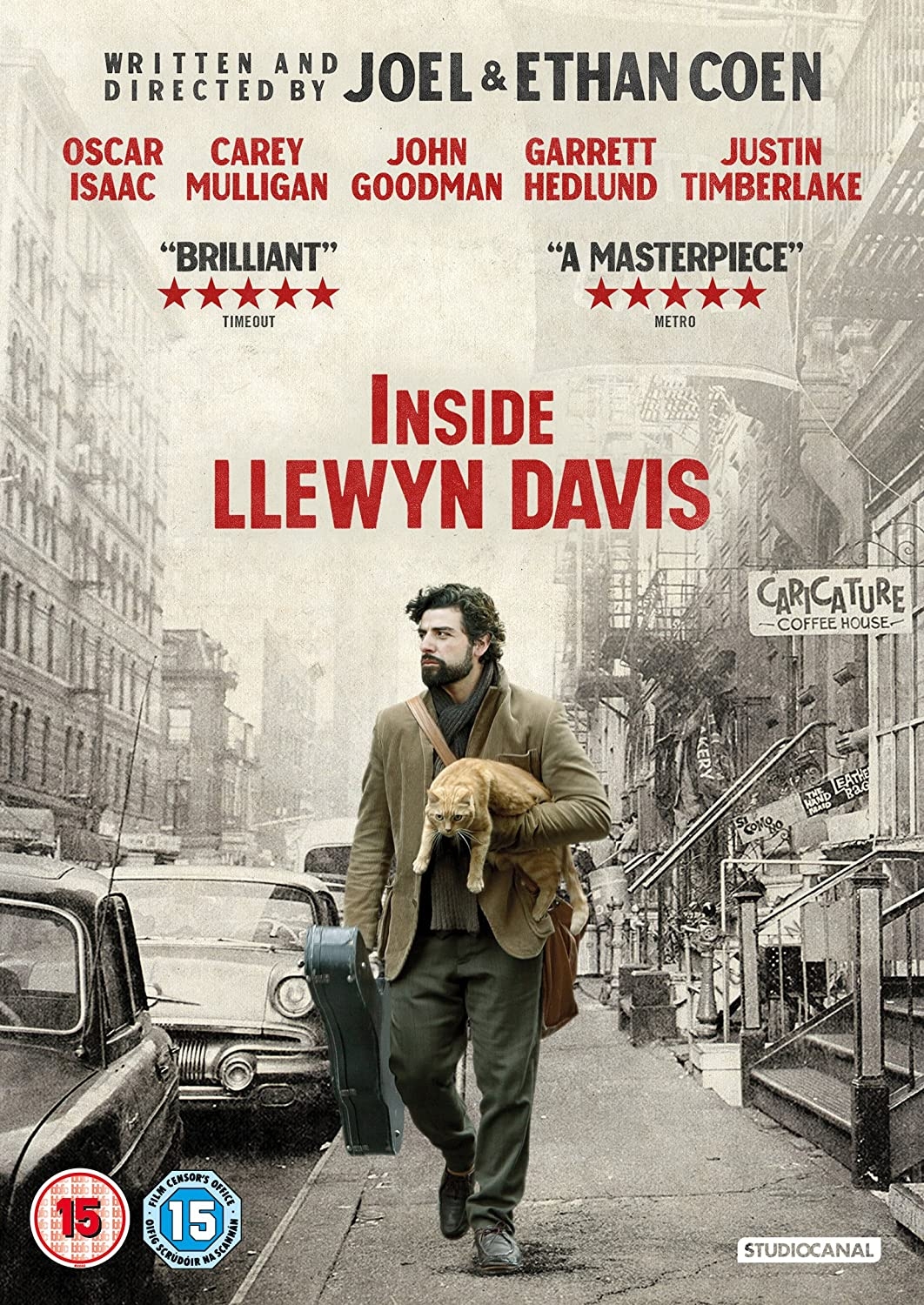 |
| Photo: Amazon |
When Joel an Ethan Coen set out to make a film set in the 1960s folk music scene, they weren’t messing around. Indeed, with Inside Llewyn Davis, music is the beating heart of the film, and its soundtrack is populated with covers of famous folk songs that are tremendous. Oscar Isaac turns in the best performance of his career thus far, and his singing on tracks like “Hang Me, Oh Hang Me” and “The Death of Queen Jane” is as mournful as his character’s soul. Isaac has a great voice, and this performance works so well because you can feel him in character as Davis when he’s singing these songs. The production by T. Bone Burnett is unsurprisingly phenomenal, and additional tracks by folks like Justin Timberlake and Chris Thile absolutely soar. Really “Please Mr. Kennedy” alone was enough to warrant consideration for this list, but the Inside Llewyn Davis soundtrack as a whole is a masterful piece of art that compliments its corresponding masterful perfectly. – Adam Chitwood
''The World’s End''
If Quentin Tarantino is one of the cornerstone filmmakers who carved out a path for memorable movie soundtracks in the 90s, I’d say Edgar Wright is his contemporary in the 2000s. The British writer/director has been using music as a vital piece of his work since the TV series Spaced, but he’s proven time and again he knows just how to hit that perfect needle drop, especially in his Cornetto Trilogy-capper The World’s End. The film is a wistful chronicle of a character so stuck on the glory of his past that he can’t move forward with his future—oh and there’s a robot invasion. Primal Scream’s “Loaded” sets the tone perfectly in the opening minutes, while songs like Suede’s “So Young” and The Doors’ “Alabama Song (Whisky Bar)” feel like they were written specifically for this film. There’s a purposefulness to each song choice that’s accentuated by spot-on editing and framing, and nearly every song on the soundtrack reinforces the film’s key themes. That they happen to be songs from the time period when the main characters were teenagers is no coincidence, and indeed Wright’s expert soundtrack choices are yet another reason he’s one of the most exciting and talented filmmakers working today. – Adam Chitwood
''Spider-Man: Into the Spider-Verse''
Probably the most surprising animated film of the past decade. The animation was gorgeous and vibrant, voice cast the perfect fit, and soundtrack urban and electrifying. While Daniel Pemberton composed the original score, songs that featured on the soundtrack included "Sunflower" by Post Malone, "Elevate" by DJ Khalil and "Home" by Vince Staples. And who can forget the song from the movie's best scene, "What's Up Danger"?
''Gravity''
Space-set movies have frequently impressed audiences over the years and the visual feast that is 'Gravity' was no different. As it followed a single astronaut (played by Sandra Bullock) lost and isolated in space, the music was more important than ever. It had to capture her emotions, the setting, and work as a kind of companion to the character. Steven Price, whose credits include 'The Lord of the Rings' and 'Batman Begins', composed the score.
''Frozen-Moana''
We've cheated already with a couple of honourable mentions on the list aside from our regular countdown. And we're going to cheat again, because you can't make us choose between the soundtracks for 'Frozen' and 'Moana'. That's like Sophie's choice. Plus then we'd have 'Frozen' and Lin Manuel-Miranda fans out for blood. And you don't want to piss off Disney nuts. "How Far I'll Go", "We Know the Way" and "You're Welcome" are 'Moana's most uplifting numbers while 'Frozen' is best-known for "Let it Go" but also "Do You Want to Build a Snowman?", "For the First Time in Forever" and "Love Is an Open Door".
“The Tree of Life” (2011)
Alexandre Desplat created a soundtrack that was as inimitable and impressionistic as its inspiration when he scored Terrence Malick’s “The Tree of Life.” This delicate score marries perfectly with Malick and cinematographer Emmanuel Lubezki’s golden imagery. Vivacious, evocative tracks like “Circles” and “River” flow into more foreboding numbers like “Light & Darkness” and “Temptation,” tinkling piano giving way to solemn strings as the film itself grows darker. Mesmeric and full of pathos, it’s the kind of score that feels inextricable from the world of the film itself — daring enough to be memorable without overshadowing such a unique (even controversial) story. Desplat earns another spot on this list with his “Little Women” soundtrack, showcasing his range. With work across all manner of genres, from various films in the Wes Anderson oeuvre to “Zero Dark Thirty,” it’s no wonder he produced such a fitting and forlorn soundtrack to this timeless epic. –LW
“You Were Never Really Here” (2018)
Lynne Ramsay’s “You Were Never Really Here” is a movie that occasionally feels like it’s going to spin out into chaos, even if we’re never in doubt that the filmmaker behind the camera is fully in control of the story she’s telling. Very much in line with the film’s many abrasive stylistic flourishes, Jonny Greenwood’s score for Ramsay’s elliptical and unsettling revenge movie acts as a showcase for this composer’s most unhinged, unclassifiable arrangements to date. The chances that Greenwood takes with his music for “You Were Never Really Here” are dazzling: “Nausea” sounds like Cliff Martinez in the studio on an Adderall bender, “Sandy’s Necklace” rides unexpectedly funky guitar work and seasick strings on a journey that evokes “Amnesiac”-era Radiohead, “Nina Through Glass” is horror-movie music played at a creeping, stomach-churningly slow tempo, while “Dark Sorcerer” sounds like Wang Chung on bath salts. It’s wild, seeing how many different styles that Greenwood attempts to juggle here, but the bigger surprise is that he somehow makes this radical balancing act work in the film’s favor. After all, “You Were Never Really Here” is a volatile film about a volatile man that maneuvers assuredly from the grimmest, most nightmarish scenarios imaginable to breathtakingly fluid action sequences, circling back for seductive arthouse movie style and carefully-deployed instances of extremely bleak comedy. Greenwood manages to cover all these bases dutifully by constructing a kind of destabilizing sonic accompaniment to Ramsay’s film that nevertheless stands on its own as a downright miraculous piece of movie music. – NL
“Vox Lux” (2018)
Pop music has become an even more perverse form of autobiography in the era of social media oversaturation: go ask Lady Gaga, Ariana Grande, and the very stable genius formerly known as Kanye West if you don’t believe us. It is a medium ideal for self-mythologizing and rewriting one’s own personal history that nevertheless offers its practitioners a platform through which they can comment upon the ebbing cultural tides of the world at large. Brady Corbet’s monumentally ambitious “Vox Lux” is an unsparing satire about this very specific moment in the history of modern American pop music, focused on a Gaga-esque pop diva named Celeste who has risen from the ashes of personal trauma to conquer the world. It’s an unwieldy, unapologetically cerebral work that didn’t resonate with many, but we are confident that Corbet’s follow-up to “The Childhood of a Leader” will have an enduring shelf life – thanks in no small part to its terrific soundtrack. Of course, “Vox Lux” wouldn’t really work if the songs in the movie didn’t slap. And thankfully, they slap hard. “Hologram (Smoke and Mirrors)” sounds like a mid-period Katy Perry earworm bent into a frightening new shape that is both catchy and downright extraterrestrial, and, in a just world, the genuinely stirring “Wrapped Up” – a self-reflexive piano ballad for the ages – would have taken Best Original Song at the 2019 Oscars. These pitch-perfect original songs are accompanied by the minacious score by Scott Walker (returning to collaborate with Corbet a second time), making “Vox Lux” the soundtrack almost as indispensable as “Vox Lux” the motion picture. – NL
''Under the Skin''
In spite of starring Scarlett Johansson and receiving high praise from critics, 'Under the Skin' flopped at the box office when it hit cinemas in 2013. Its story of an alien who preys on men in Scotland was just too weird for audiences. The soundtrack was similarly otherworldly and creepy, composed by Mica Levi (aka Micachu), whose expertise is experimental pop. Levi went on to compose the score for Jacqueline Kennedy biopic 'Jackie', for which she earned an Oscar nod.
''Marie Antoinette''
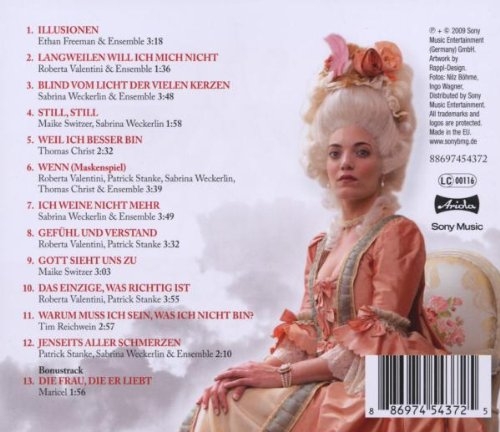 |
| Photo: Amazon |
Whether or not you think post punk songs fit within an 18th-century period historical drama it’s undeniable that Marie Antoinette has a great soundtrack. Gang of Four, Siouxsie and the Banshees, Adam and the Ants, The Cure, The Strokes, New Order—this is a great collection of tunes.
Now, I’ve already written a lot of words about why the music works in the film, so lemme be precise in my praise here: the reason why post punk works in Marie Antoinette is because punk itself pleaded for societal change and kicked governmental hypocrisy right in the teeth (exhibit A: everything from The Clash; exhibit b: The cover art for the Sex Pistols’ God Save the Queen with ransom-letter cutout lettering to remove the Queen’s eyes and mouth). Post punk was a dreamier and drearier reaction to punk’s frenzy. In Sofia Coppola’s film, Marie Antoinette (Kirsten Dunst) is oblivious to the formation of French Revolution that’ll eventually take her head because she’s more engaged with the dreamy aspects of the opulence in Versailles. And the final reason why it works is because Coppola’s film isn’t concerned with historical accuracy, it’s concerned with Antoinette’s youth and inability to govern because if you’re young you just want candy. — Brian Formo
''24 Hour Party People''
When Michael Winterbottom made a biopic of Tony Wilson (Steve Coogan) when he started Factory Records, it of course meant that a lot of great tunes were available for him to use. The Manchester imprint gave us Joy Division, A Certain Ratio, New Order and the Happy Mondays. Post-punk classics all, it’d be hard to not have a great soundtrack pulling from those bands. But the reason why 24 Hour Party People is a great soundtrack is because this isn’t a film that’s just about Factory Records—it’s about Manchester (and every other city that has great music emerge not from the cultural epicenter but from a less glamorous place; think Seattle during the alternative and grunge years when that city became the focal point of a different type of rock and roll than what was coming out of Los Angeles labels before it). As such, the soundtrack and movie includes live performances and singles from the Buzzcocks and other Manchester bands that weren’t on Factory but were a part of the community of punks from the region that collectively got their moment when the punk sounds from London was becoming less fashionable. And in representing a less cosmopolitan city, the bands of Manchester sounded like they needed a release from a deep depression, and a new sound was born. — Brian Formo
''O Brother, Where Art Thou?''
The O Brother, Where Art Thou? soundtrack is one of the most successful soundtracks of all time. It went eight times platinum and won the Grammy Award for Album of the Year in 2002. But even if it hadn’t been a critical and commercial smash, it would still be one of the best soundtracks of the 21st century for how the Coen Brothers’ snuck in a movie musical using a combination of bluegrass, country, gospel, blues, and folk music. The fact that film hinges on “I Am a Man of Constant Sorrow” makes it even richer, but there’s not a weak track on this entire album. – Matt Goldberg
''Walk Hard: The Dewey Cox Story''
Walk Hard isn’t just a hilarious parody of music biopics; it has music that’s good enough to hang with the real article. The soundtrack basically allows the writers to poke fun at a variety of artists including Bob Dylan, Johnny Cash, and others, but every song just works. They’re startlingly catchy, and even though you only hear fractions of them in the finished film, they’re all terrific in their entirety. It’s a soundtrack that needed to be funny to work, and it’s downright hilarious. It almost feels like a bonus that the music is genuinely good. – Matt Goldberg
''Django Unchained''
We can’t have a list of the best soundtracks without Quentin Tarantino; the challenge comes in choosing which one. For me, I have to go with Django Unchained. While the soundtracks for Kill Bill and Inglourious Basterds are fantastic, Django just has such a wonderfully eclectic mix from using Rocky Roberts & Luis Bacalov’s “Django” (which, granted, would have been a glaring omission had it been left out) to terrific tracks like “Unchained (The Payback/Untouchable)”, “Too Old to Die Young”, and “100 Black Coffins”. It’s a soundtrack that manages to straddle the line between its spaghetti western influences and modern hip-hop wonderfully. – Matt Goldberg
''Once"
The soundtrack to Once picked up an Oscar for the song “Falling Slowly”, but pretty much all of the tracks are amazing. There’s an aching loveliness to both Glen Hansard and Marketa Irglova’s vocals, and they turn John Carney’s musical into something profound and unforgettable. While the film doesn’t feature people bursting out into song, it does feature two musicians falling for each other and expressing themselves through their music. It’s a quiet, beautiful affair that offered a must-own soundtrack. – Matt Goldberg
"Sing Street"
It’s a crime that Sing Street didn’t receive more recognition upon its release, but hopefully more people are currently finding it through Netflix. John Carney’s 2016 film is a wonderful mash-up of 80s rock-pop classics combined with original tunes that seek to stand alongside those classics. While some tunes like “Riddle of the Model” are lovably low-key and achingly real to the limitations of the teenagers’ talent, they’ve also got a showstopper with “Drive It Like You Stole It”. This album has it all and definitely deserves to be in your collection – Matt Goldberg
| Above is a list of the best 45 soundtracks in the recent decades. IF you have any recommendations, feel free to add them to the comment section below, and don't forget to lie share and follow KnowInsiders for more interesting news. Thanks for tuning in! |
Check out more relevant news right below!
 TOP 20 most popular female songs of all time TOP 20 most popular female songs of all time Half of the most popular, powerful songs in the world come from our women. Let's check the list of top 20 most popular female songs ... |
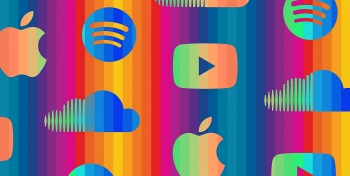 Top 10 Best Free Music Websites To Download Songs Legally Top 10 Best Free Music Websites To Download Songs Legally The internet offers a lot of things, especially free music. Knowinsiders has already prepared a list of Best Free Music Websites To Download Songs Legally. ... |
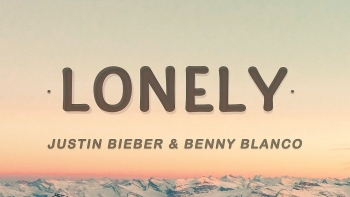 Full Lyrics of 'Lonely' - Justin Bieber feat. Benny Blanco Full Lyrics of 'Lonely' - Justin Bieber feat. Benny Blanco "Lonely" is one of Justin Bieber's best songs, which will be included in his upcoming sixth studio album Justice (2021). The single is a work ... |


























